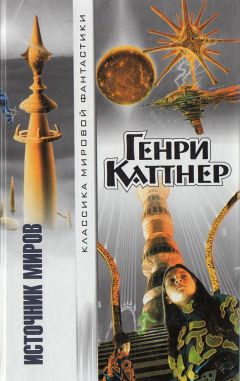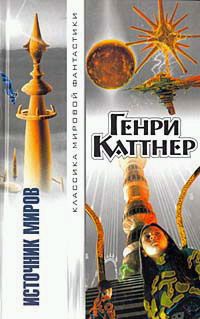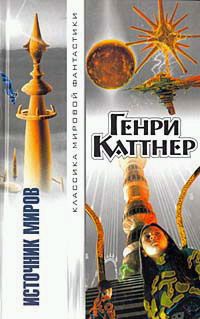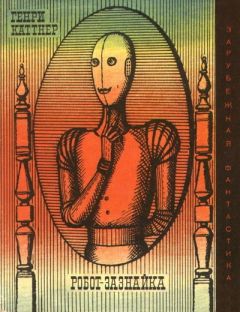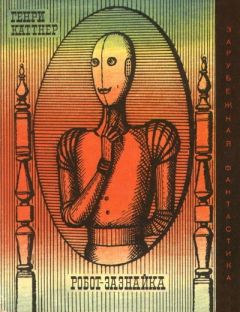Nancy - The Islands of the Blessed
“He’s my brother,” explained Big Half. “Mother always said I was so big, there wasn’t enough left over to make him.”
“Garm’s fangs! Do you see that?” cried the dwarf, pointing excitedly. “It’s Bjorn’s best horse come home again—and who’s that riding him?” Thorgil was approaching slowly, keeping pace with the Bard. Jack hadn’t paid much attention to the shield maiden’s looks, but now he saw her through Little Half’s eyes.
She wore a sky blue tunic over a green dress and soft leather boots. Her legs were visible because she rode astride, but they were cased in purple leggings that had certainly caught the dwarf’s attention. Around her neck was an amethyst necklace, most certainly a gift from King Brutus. Thorgil had chosen not to wear a veil, and so her fine, wheat-colored hair flowed in the breeze and her cheeks were rosy with sunlight.
“Oh, the pretty creature,” murmured Little Half, clasping his hands. Thorgil allowed Big Half to help her down, and Jack noticed that the man’s face had broken out with sweat. Thorgil thanked him sweetly. She whispered something into the stallion’s ear, and he turned and galloped back to the heath.
“That was Bjorn’s best horse,” Big Half protested.
“He’ll return when I call him,” Thorgil said. “This is Dragon Tongue, whose fame is renowned throughout the nine worlds.” She nodded grandly to the Bard, who looked faintly surprised by her behavior. Jack certainly was. They were trying to allay the fears of the islanders, not remind them of the Bard’s well-known powers.
“I’ve heard of Dragon Tongue,” Little Half said uneasily. “They say that he can drive men mad by blowing on a wisp of straw. They say he melted a hole in the Mountain Queen’s fortress.”
Jack was intrigued. This was a tale he’d been trying to pry out of the old man without success.
“That was in my youth,” the Bard said, sighing. “Alas, age falls upon us all.” He leaned on his staff as though it were the only thing holding him up. “It would be good to rest somewhere,” he said pointedly, looking at the gate.
“You can’t spend the night here,” Little Half said rudely.
“But, brother, only the other day the king said he wanted visitors—”
“Shut your face,” snarled the dwarf. Jack was amazed by his hostility, and Skakki looked surprised too. Hospitality demanded that a Northman offer lodging, especially to an old friend.
Big Half looked unhappy, but he went back inside and dragged out a stool. “Rest yourself on that, Dragon Tongue. I’ll fetch you something to eat, and something for you, too, pretty lady.”
“Allow me to introduce Thorgil, my heart-sister,” said Skakki, indicating that she had been adopted. The brothers bowed and Thorgil accepted their homage as though it were the most natural thing.
“I am heart-daughter to Olaf One-Brow, but my mother was of the line of King Hengist,” she said proudly. Now Jack understood what she was up to. She’d always felt shamed because her mother had been a thrall. Thorgil herself had been a thrall most of her life, and the bitterness of it had eaten into her soul. She wasn’t going to pass up a chance to act like royalty.
“A princess!” cried Big Half. “Oh, my, my, my! To think that we’d be so lucky. Wait till I tell the king.”
“I told you! No visitors tonight,” objected Little Half.
“But a princess—” The brothers went off to confer, and Jack caught fragments of the conversation: enemies, dangerous, hogboon, and now and then, princess. Finally, they came back and Little Half said they would ask the king for permission.
“I didn’t know Bjorn was a king,” Jack said when the brothers had gone.
Skakki shrugged. “If he wants to call a group of turf houses a kingdom, I don’t see the harm in it.”
The Bard had settled himself on the stool and was examining the wall closely. “There are markings here, Jack. Do you recognize them?”
The stones were extremely weathered and covered with lichen, but the boy could make out the faint outlines of animals. One of them was a serpentlike creature standing on its tail. “Is that a carnyx?” he asked.
“It’s what the carnyx was copied from. It’s a male Pictish beast. The females have legs of a sort; the males have none. I’d guess this wall was made from an old Pictish tower. Speaking of claiming kingship, Thorgil, do you think it wise to pose as a princess?”
“That was their conclusion,” she said. “I only said I was of the line of Hengist. Besides, dressing up and mincing around is a surprisingly effective battle strategy.”
The Bard laughed. “I know that strategy. It’s called ‘flirting’.”
“Flirting?” said Thorgil, puzzled by the word. But before the Bard could explain, Big Half and Little Half returned.
“His Majesty bids you welcome,” the dwarf said with a deep bow.
When they were through the gate, Big Half closed it with nine bolts. That’s a lot of bolts for one gate, thought Jack. The wall was as deep as his outstretched arms and higher than Skakki’s head. What kind of enemy was Bjorn expecting? He remembered the words the brothers had used: enemies, dangerous, hogboon. What on earth was a hogboon?
Inside, a courtyard separated the wall from the large hall beyond. Jack had expected the same landscape that existed outside, but here was no grass or heather. The ground was completely dead in spite of a spring bubbling up in the middle. The water had carved a deep channel, but it didn’t flow more than a few paces before it disappeared into a rift in the ground.
The courtyard reminded Jack of the old fortress of Din Guardi, where nothing grew. It didn’t have the cold despair of that place, however. Rather, it seemed filled with active resentment, a simmering rage that would wither the leaves of any plant brave enough to sprout. Jack felt sweat trickle down the back of his neck.
“You feel it too,” the Bard said in a low voice. “It’s the wall. The stones have been stolen from a Pictish tower, and those towers are not like other buildings. They draw their strength from the blood of men buried alive beneath them.”
“What’s that you say?” said Little Half, walking behind them. He was so short, Jack hadn’t noticed him. “I told the king it was a rotten idea to tear down that tower. The horses bolted rather than carry the stones, and not one of them came back until today.”
The entrance of the hall was secured by an iron door. Jack had never seen such a thing and wondered about it. The heavy door creaked dismally as it was dragged open, but when it was closed behind them, the simmering rage vanished. That explained why Bjorn had used such an expensive substance.
The hall itself was a simple structure, somewhat like King Ivar’s dwelling in the Northland. A long fireplace ran down the middle, unlit at the moment. On either side were tables with benches, and along the walls were narrow sleeping cupboards. It was cluttered, as such places were, with chests, bedding, and stacks of peat to be used for the fire. The floor was covered by an ankle-deep layer of straw. At either end were openings leading to other rooms and possibly other ways to get into the courtyard. Jack knew from the Bard that such establishments sometimes had escape routes in case of an invasion.
On the seaward side two small windows let in the late-afternoon light. They would be blocked with bundles of hay at night or in bad weather.
A farther, open door led to a spacious area between the hall and the cliff’s edge. Here were the features one usually associated with a large household: kitchens, barns, a granary, and an herb garden. Men were preparing game, cooking, or mending fishnets. Women sat weaving in the mild sunlight, and children drove seagulls away from drying fish. Yet there was a curious lifelessness about the place. The children didn’t play or laugh.
“Hey, you! Get some water,” bellowed a man at a pair of scullery boys.
“We did it last time,” one of the boys dared to say, and he received a blow.
“Get moving or I’ll lock you into the courtyard,” threatened the man. The boys quickly gathered buckets and hurried to the iron door.
“The stream is our only source of freshwater,” Little Half explained. “People don’t like going out there because… well, you felt it. Sit down, honored guests, and I’ll get you bread and cheese. The king will be with you as soon as he’s finished combing his beard.”
“Combing his beard?” whispered Jack, amused. “How long does that take?”
“Perhaps he’s trying to impress me,” Thorgil said, fluffing her hair.
“No, Bjorn would never put on airs like that,” declared Skakki. “He’s just getting the nits out.”
The dwarf returned with food and excused himself. They ate. The silence of the hall settled over them. The sun lowered until it shone directly inside, and a haze of dust motes drifted through the light. “How do all those people fit in here at night?” Jack said at last.
“I imagine most of them return to the village before dark,” said the Bard. “I suggest we do the same. There’s something wrong here, and I can’t quite put my finger on it.”
“I should get Bjorn’s permission to camp on the beach,” Skakki argued. “Besides, he may have useful information about Notland.”
“The only information he could possibly have is a warning to stay away from the wretched place.” The Bard was getting tired and cranky. He thumped his staff on the floor. “Where is that so-called king?”
As if by magic, Little Half appeared. “I’m dreadfully sorry, honored guests. The king was called away to tend to a dead sheep. A terrible bird came out of the sky and frightened it into a ravine. They’ve gone off to retrieve the body. He sends his most sincere apologies and hopes you will accept his hospitality tonight.”
“Unfortunately, we must return to our ship,” said the Bard, rising to his feet. But at that moment a horn sounded and servants streamed into the hall bearing platters of food. They began setting the tables with trenchers of bread, wheels of cheese, pots of yellow butter, and a variety of roasted meats. A drinking horn was set up on a metal stand at each place.
At the same time, the village workers filed past and disappeared through the iron door. But when the Bard, Skakki, Jack, and Thorgil tried to follow them, they found a row of grim Northman warriors blocking their way. “Where did they come from?” said Jack.
“I’ve been a fool,” the Bard said. “All that waiting was a trick to keep us here. I don’t know why, but the reason can’t be good.”
“Bjorn was Olaf’s best friend,” protested Skakki.
“We’ll see,” the old man said. There was nothing to do except sit down and try to look cheerful about it. The tables were laden with food, yet no one arrived to eat it. The sun slid below the cliff. Seagulls wheeled in great flocks before going off to wherever they would spend the night.
The servants lit the fireplace and set fish-oil lamps in alcoves along the walls. They fitted bundles of straw into the windows and fastened sheepskins over them to keep out drafts. The air quickly became stale.
